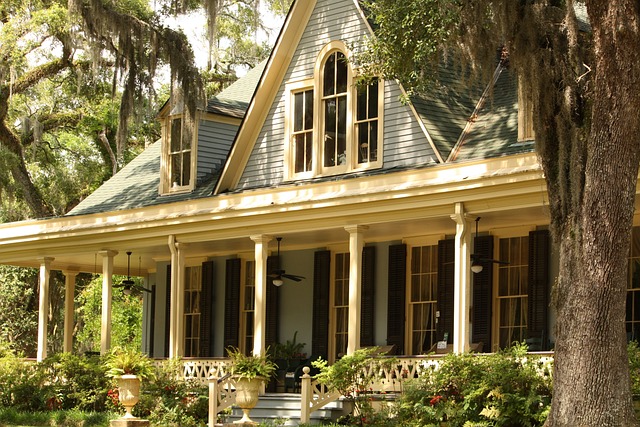2024 will see Singapore significantly advance its environmental conservation efforts with initiatives from Singapore Ec, aiming to weave biodiversity into city planning and expand green spaces for enhanced quality of life and wildlife habitats. The introduction of protective measures for marine ecosystems, including new marine protected areas and coral reef health research, will be complemented by waste management innovations emphasizing waste reduction, recycling, and composting. Advanced technologies like sensors, drones, AI, and precision engineering will enhance the monitoring and management of aquatic ecosystems to ensure long-term sustainability. Singapore Ec's projects also focus on ecological restoration, employing smart technologies for real-time data collection to improve water quality and biodiversity. Efforts to establish green corridors will protect endemic species like the Sunda pangolin and Raffles' banded leaf monitor. The Environmental and Water Resources Agency (EWR) and the Environmental Challenges Committee (ECC) are also working to reduce Singapore's carbon footprint through energy-efficient retrofits, smart grid technology, renewable energy integration, and sustainable transportation initiatives, including electric vehicles and improved public transport infrastructure. Community engagement is a cornerstone of these efforts, with citizen science programs and educational workshops encouraging active participation in conservation and stewardship. Singapore's comprehensive approach to ecological stewardship underscores its commitment to sustainability and environmental conservation, positioning it as a global leader in sustainable urban living.
2024 promises a year of significant environmental advancements for Singapore, with a suite of projects poised to enhance ecological conservation, restore natural habitats, and address climate change challenges. This article delves into the vanguard initiatives set to shape Singapore’s commitment to ecological preservation, leveraging innovation, community engagement, and sustainable strategies. From protecting endemic species to championing carbon footprint reduction, these projects underscore Singapore’s dedication to maintaining a vibrant ecosystem for future generations. Join us as we explore the transformative EC projects of 2024 and their potential impact on Singapore’s ecological landscape.
- Sustainable Horizons: A Glimpse into Singapore's Ecosystem Conservation Initiatives for 2024
- Innovative Rehabilitation: The Role of Technology in Restoring Singapore's Water Bodies Next Year
- Biodiversity Buffers: Protecting Endemic Species in Singapore's Green Spaces in 2024
- Carbon Footprint Challenge: Strategies for Lowering Emissions in Urban Settings, Singapore 2024
- Community-Centric Conservation: Engaging Local Residents in Singapore's Eco Projects for 2024
Sustainable Horizons: A Glimpse into Singapore's Ecosystem Conservation Initiatives for 2024

2024 is set to be a pivotal year for Singapore’s environmental conservation efforts, with several initiatives under the umbrella of ‘Sustainable Horizons’. The nation’s commitment to preserving its unique ecosystem is evident in the slate of projects planned for the year. Notably, the expansion of green spaces within urban areas will continue, with an emphasis on integrating biodiversity into city planning. This initiative aims to increase habitats for native wildlife and enhance the living experience for residents by incorporating natural elements such as parks and water bodies into daily life.
Singapore Ec is also set to roll out innovative programs aimed at protecting marine biodiversity. These include the establishment of new marine protected areas and the launch of a comprehensive study on coral reef health, which is crucial for maintaining the resilience of marine ecosystems. Additionally, the introduction of sustainable waste management solutions will be a focus, with projects designed to minimize waste generation and promote recycling and composting. These efforts are part of a larger strategy to create a more sustainable future for Singapore, ensuring that its ecological legacy remains robust for generations to come.
Innovative Rehabilitation: The Role of Technology in Restoring Singapore's Water Bodies Next Year

2024 promises significant advancements in ecological restoration projects, particularly in Singapore where innovative rehabilitation efforts are set to transform its water bodies through the judicious application of technology. The Environmental and Water Resources Agency (EWR) in Singapore has been at the forefront of integrating cutting-edge solutions to address environmental challenges. Next year, the agency plans to deploy a suite of smart technologies that monitor and manage aquatic ecosystems more effectively. These include sensors and drones for real-time ecological data collection, AI algorithms to analyze water quality and biodiversity, and precision engineering to create habitats conducive to the native flora and fauna. The aim is to not only restore these vital natural assets but also to ensure their long-term sustainability. These initiatives underscore Singapore’s commitment to ecological conservation and its dedication to leveraging technology for environmental enhancement. By 2024, these projects will be instrumental in showcasing the nation’s innovative approaches to maintaining its ecological balance, aligning with global sustainability goals and setting a precedent for future environmental stewardship.
Biodiversity Buffers: Protecting Endemic Species in Singapore's Green Spaces in 2024

2024 marks a pivotal year for Singapore’s environmental conservation efforts, with a suite of projects set to bolster the nation’s biodiversity buffers. A cornerstone initiative is the enhancement of endemic species protection within Singapore’s green spaces. The Ecological and Environmental Conservation (EEC) projects slated for 2024 aim to safeguard these vital habitats, ensuring they remain robust against the challenges posed by urbanization and climate change. These efforts are integral to maintaining the island-nation’s unique biodiversity, which is a testament to Singapore’s commitment to ecological stewardship.
In 2024, the EEC will focus on creating interconnected green corridors that serve as biological bridges across the island. These corridors are designed to facilitate genetic exchange and reduce the risk of isolation for endemic species. The initiative is particularly attuned to species such as the Sunda pangolin, the Raffles’ banded leaf monitor, and the Singapore freshwater lobster, which are endemic to the region but face threats from habitat loss. Through a combination of ecological mapping, restoration projects, and targeted conservation measures, these initiatives aim to secure a sustainable future for these and other native species within Singapore’s green spaces, thereby preserving the country’s rich biodiversity for generations to come.
Carbon Footprint Challenge: Strategies for Lowering Emissions in Urban Settings, Singapore 2024

In 2024, Singapore’s Environmental Challenges Committee (ECC) is set to spearhead a series of projects aimed at mitigating the carbon footprint within urban settings. Recognizing the urgent need for sustainable development and emissions reduction, the ECC’s initiatives will focus on integrating advanced green technologies into the city-state’s infrastructure. One of the key strategies involves retrofitting existing buildings with energy-efficient systems, including LED lighting and high-performance insulation to reduce energy consumption. The committee is also exploring the deployment of smart grids that optimize energy distribution and integrate renewable sources like solar and wind power. Additionally, the ECC plans to expand Singapore’s green spaces as part of a larger effort to absorb carbon dioxide emissions, improve air quality, and enhance the urban environment’s biodiversity. These initiatives are not only designed to lower emissions but also to create a resilient urban ecosystem that can withstand future environmental challenges.
Another cornerstone of Singapore’s approach in 2024 will be the promotion of sustainable transportation options, aiming to curb carbon emissions from the automotive sector. The ECC is working towards establishing a comprehensive network of electric vehicle (EV) charging stations and incentivizing the adoption of EVs through subsidies and tax benefits. Car-sharing programs and improved public transport connectivity are also on the agenda, encouraging residents to opt for more eco-friendly travel choices. The committee is collaborating with local businesses and community organizations to encourage a culture of sustainability, ensuring that Singapore’s carbon footprint reduction efforts are a collective endeavor. These strategies, when fully implemented, will not only contribute to global climate goals but also set a precedent for sustainable urban living.
Community-Centric Conservation: Engaging Local Residents in Singapore's Eco Projects for 2024

2024 promises a pivotal year for ecological initiatives in Singapore, with a strong emphasis on community-centric conservation efforts. The Ecological and Conservation (EC) projects slated for this year are designed to not only protect and preserve the island’s biodiversity but also to foster a deeper connection between local residents and their natural surroundings. These initiatives aim to empower citizens as stewards of Singapore’s unique ecosystems, leveraging citizen science and community-based monitoring to track and safeguard native species and habitats.
A key focus will be on engaging various communities through workshops, educational programs, and volunteer opportunities that highlight the importance of ecological conservation. These efforts are set to enhance public spaces, such as parks and nature reserves, with interactive displays and guided tours that provide insights into Singapore’s ecological diversity. By integrating technology and innovation, these projects will also offer digital platforms for data collection and sharing, enabling residents to participate in real-time environmental monitoring and contribute to scientific research. The EC’s commitment to fostering a sustainable future is evident in the tailored programs aimed at all age groups, ensuring that every member of the community can engage with and take pride in Singapore’s ecological heritage. These initiatives underscore Singapore’s dedication to maintaining its status as a world-class city with a vibrant commitment to environmental conservation.
2024 promises a pivotal year for ecological conservation in Singapore, with a slate of initiatives poised to enhance sustainability, restore natural habitats, and engage communities. From the implementation of advanced technologies in water body rehabilitation to the strategic reduction of carbon emissions within urban environments, Singapore’s commitment to Ec projects reflects a progressive approach towards preserving its unique biodiversity and promoting sustainable living. As these initiatives unfold, they will undoubtedly set a benchmark for ecological conservation efforts globally, underscoring Singapore’s role as a leader in environmental stewardship. Residents and stakeholders alike are invited to participate and witness the transformative journey that lies ahead.
